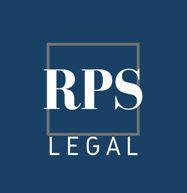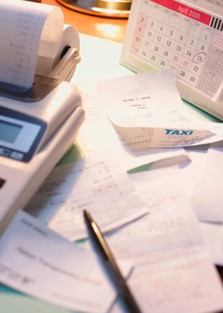Local and foreign investors can open various types of companies in the Netherlands and one of the main requirements they need to comply with after creating them is to pay the relevant taxes in accordance with the profits they make.
Most entities are required to file audited accounts and for this the auditors analyzing their financial statements must comply with specific regulations. These are known as accounting and auditing standards.
In the Netherlands, there are two important standards that can be employed by specialists. These are the Generally Accepted Accounting Standards (GAAP) and the International Financial Reporting Standards (IFRS).
Below, our accountants in the Netherlands present a comparison between the GAAP and the IFRS in order to company owners to understand how these work. We offer tailored accounting services that can comply with both reporting standards.
Financial reporting and accounting in the Netherlands
The Generally Accepted Accounting Standards in the Netherlands (GAAP) and the International Financial Reporting Standards (IFRS) are two different sets of financial reporting standards which are available to companies incorporated in the Netherlands. While the IFRS have gained more popularity over the years, the Dutch GAAP are the locally accepted accounting principles.
The differences between the Dutch GAAP and the IFRS can vary according to the type of company, the nature of the business, the industry and the accounting policies established by the company internally. Our Dutch accounting firm can provide complete accounting services in the Netherlands.
The Dutch Generally Accepted Accounting Standards
The Generally Accepted Accounting Standards in the Netherlands are based on a larger collection of laws, rules and regulations regarding the accounting process in the Netherlands. The Dutch GAAP includes the Dutch Civil Code and the Dutch Accounting Standards published by the Dutch Accounting Standards Board.
The Dutch Civil Code is used for profit-oriented business entities in the Netherlands. Unlike the IFRS, the Guidelines on Annual Reporting from the Dutch Accounting Standards Board may be used by profit-oriented organizations as well as by some not-for-profit organizations. Unlike the IFRS, the Dutch GAAP contains some exemptions for small and medium sized companies and different guidelines for annual reporting exist for small companies.
The International Financial Reporting Standards
The International Financial Reporting Standards (IFRS) are composed of the entire collection laws, rules and regulations issued by the International Accounting Standards Board (IASB). They are designed to be used by for-profit legal entities and unlike the Dutch GAAP they do not contain special standards or exemptions for small and medium sized companies in the Netherlands.
What are the financial statements under the Dutch GAAP?
The financial statements represent a set of accounting documents that have to be completed by all Dutch companies during a financial year. These documents need to be subscribed with the local authorities following specific regulations, that can depend on the legal entity of the company. Under the Dutch GAAP, financial statements refer to the following:
- • a statement concerning the financial situation of a Dutch company, which in this case is represented by the balance sheet;
- • the income statement and a statement regarding the cash flow of the company;
- • a statement regarding the company’s comprehensive income, which can be completed as an extension of the income statement;
- • explanatory notes regarding the accounting policies adopted by the company operating in the Netherlands.
When completing accounting documents following the Dutch GAAP, it is necessary to know that the company will not need to subscribe certain financial documents that are requested when adopting the IFRS principles. For example, it isn’t necessary to draft a statement of changes regarding the equity of the company, nor is it required to present another balance sheet in the situation in which an identified error was adjusted; our Dutch accounting firm can offer more information regarding the financial documents that have to be completed under the GAAP.
In the case of accounting documents completed following the Dutch GAAP, it is necessary to know that such documents are to be completed following prescriptive formats, which is not the case when applying IFRS. However, in both cases, companies must present their consolidated financial statements and this rule applies to most of the businesses operating here.
What are the financial statements under the IFRS?
Companies in the Netherlands that follow the IFRS principles will also have to present their financial statements. In this situation, the financial statements are comprised of similar documents that are requested under the Dutch GAAP, but there are certain differences. In this situation, it will be necessary to complete a statement on the financial position of the company, a profit and loss statement, a statement on the changes in equity, a cash flow statement and the notes regarding the accounting principles used by the accounting firm in the Netherlands.
The applicability of the GAAP and IFRS in the Netherlands
Dutch companies can choose between both reporting standards, however, there are a few important aspects to consider as the accounting regulations suffer various changes in time, some of them being replaced from year to year.
When comparing the Dutch GAAP to the IFRS, the following are to be noted:
- the GAAP applies to all financial statements filed after the 1st of January 2018,
- only the 9th, 15th, 16th, and 17th standards can be used by companies filing statements after the 1st of January 2018,
- the 17th standards in the IFRS will become effecting starting 2021,
- the GAAP can be used by medium and large-sized enterprises with a minimum annual revenue of EUR 40 million and less than 250 employees.
When it comes to the applicability of the Dutch GAAP vs. the IFRS, the following should also be considered:
- – private companies set up as Dutch BVs as well as NVs can follow the GAAP reporting standards,
- – Dutch NVs listed on the Stock Exchange are required to follow the IFRS reporting standards when filing consolidated statements.
In the case of private companies, these too can follow the IFRS, if they want to.
Our Dutch accountants can offer more information on how to choose between the two reporting standards.
Compliance requirements when using the GAAP and IFRS
When it comes to complying with one of the two reporting standards, it should be noted that in the case of the Dutch GAAP, company managers are not required to issue a specific statement mentioning that the financial statements comply with the GAAP. In the case of the IFRS, company directors are required to notify the tax authorities that the financial statements comply with them. Moreover, in order to claim compliance with the IFRS standards, a company is required to follow entirely all requirements impose by them.
At this level it is safe to say that the Dutch GAAP are more flexible compared to the IFRS, therefore small companies can use the first one for simplified reporting requirements.
Our accounting firm in the Netherlands can use both standards when preparing annual financial statements. In the Netherlands, payroll is usually outsourced because of the many tax hurdles companies have to face. The Box taxation system, the available deductions and allowances and the other levies to be paid in relation to employment can take their toll on companies who will need several accountants to take care of this task alone.
The components of the financial statements filed under the Dutch GAAP
Dutch companies are required to file specific documents that accompany the financial statements, and these are quite different when taking into account the two reporting standards.
Under the GAAP, the financial statements of a Dutch company must be made of:
- – the balance sheet and an income statement,
- – detailed notes on the accounting policies employed by the company alongside explanatory notes,
- – the cash flow statement is also required in the case of medium and large companies.
Large entities are also required to file a comprehensive income statement which must contain the consolidated net result and all assets recognized as equity.
All companies are required to file a director’s report under the GAAP.
The content of financial statements under the IFRS
Dutch companies using the IFRS will file financial statements which must be made of:
- – the balance sheet, however, a financial position statement is also accepted,
- – a comprehensive income statement or a separate income statement,
- – a declaration on the changes in the company’s equity,
- – the cash flow statement,
- – information about the accounting policies used by the company.
The management too must draft a report on the balance sheet when applying a specific accounting policy retrospectively or when making an ulterior restatement. Also, when assets in the financial statements are reclassified, the information must be found in the company directors’ report.
If you have questions about the reporting standards that can be used, our Dutch accountants can clarify them.
What types of accounting principles can Dutch companies take?
When applying a certain type of accounting principle for a local company, the size of the business represents the main criteria. Following the legislation applicable in the Netherlands, micro companies and small companies have more options in this sense, and our team of Dutch accountants can offer an in-depth presentation on the below mentioned standards:
- • Book 2 of the Dutch Civil Code, used together with the Dutch principles on fiscal valuation;
- • the Dutch Accounting Standards for micro and small legal entities;
- • the Dutch Accounting Standards for medium sized and large companies;
- • IFRS applicable at the level of the European Union, which have to be combined with specific parts of the Dutch Civil Code.
In the case of medium sized or large companies, there are fewer options concerning the accounting procedures, as they may use either the Dutch Accounting Standards for medium sized or large companies, of the IFRS. When talking about listed companies, the IFRS represent the main way to conclude the company’s accounting documents and although this represents the main accounting standard, certain parts of the Dutch Civil Code can apply here as well.
In order to apply a specific type of accounting standard, an investor should know the clear definition of a micro, small, medium-sized or large company. In the Netherlands, a micro company is defined as a legal entity which employs less than 10 employees, has assets with a total value of less than EUR 350,000 and a yearly revenue of maximum EUR 700,000.
A small company is defined as one which employs maximum 50 employees, has a total yearly revenue of maximum EUR 12 million and assets with a value of EUR 6 million; a medium sized company in the Netherlands is one that has a revenue accounting for maximum EUR 40 million, has less than 250 employees and holds assets with a value of maximum 20 million. A large business is any type of company that has values above the thresholds that are applicable to medium-sized companies.
It is necessary to know that in the Netherlands, a company is eligible for one of the four categories mentioned above in the situation in which it qualifies for at least two of the three criteria (revenue, assets and employees) for a period of minimum two financial years (two successive years).
If compared to the Dutch GAAP, which can be regarded as a set of recommendations with less guidance for application, the IFRS are more prescriptive and in-depth. Our accounting firm in the Netherlands can provide detailed information about the main differences regarding the general requirements for financial statements, separate financial statements, the accounting method and many others. Please contact our Dutch accounting firm if you need professional accounting services for your Dutch company, including audit services in the Netherlands.

